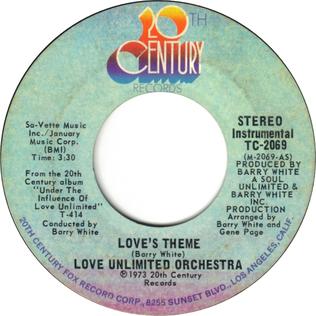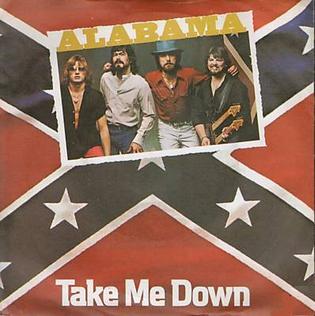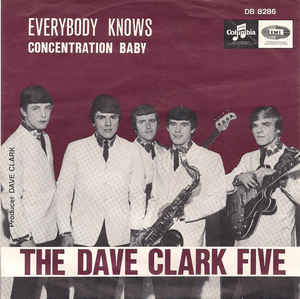
"Me and Bobby McGee" is a song written by American singer-songwriter Kris Kristofferson and originally performed by Roger Miller. Fred Foster shares the writing credit, as Kristofferson wrote the song based on a suggestion from Foster. A posthumously released version by Janis Joplin topped the U.S. singles chart in 1971, making the song the second posthumously released No. 1 single in U.S. chart history after "(Sittin' On) The Dock of the Bay" by Otis Redding. Gordon Lightfoot released a version that reached number 1 on the Canadian country charts in 1970. Jerry Lee Lewis released a version that was number 1 on the country charts in December 1971/January 1972 as the "B" side of "Would You Take Another Chance On Me." Billboard ranked Joplin's version as the No. 11 song for 1971.

"Stay" is a doo-wop song written by Maurice Williams and first recorded in 1960 by Williams with his group the Zodiacs. Commercially successful versions were later also issued by the Hollies, the Four Seasons and Jackson Browne.

"Breaking Up Is Hard to Do" is a song recorded by Neil Sedaka, co-written by Sedaka and Howard Greenfield. Sedaka recorded this song twice, in 1962 and 1975, in two significantly different arrangements, and it is considered to be his signature song. Between 1970 and 1975, it was a top-40 hit three separate times for three separate artists: Lenny Welch, The Partridge Family and Sedaka's second version.

"Sundown" is a song by Canadian folk artist Gordon Lightfoot, from the titular album, released as a single in March 1974.

"Walk On By" is a song written by Burt Bacharach and Hal David for singer Dionne Warwick in 1963. Warwick's recording of the song peaked at number 6 on the US Billboard Hot 100 and number 1 on the Cash Box Rhythm and Blues Chart In June 1964 and was nominated for a 1965 Grammy Award for the Best Rhythm and Blues Recording.

"I'll Never Fall in Love Again" is a popular song by composer Burt Bacharach and lyricist Hal David that was written for the 1968 musical Promises, Promises. Several recordings of the song were released in 1969; the most popular versions were by Dionne Warwick, who took it to number 6 on Billboard magazine's Hot 100 and spent three weeks topping the magazine's list of the most popular Easy Listening songs, and Bobbie Gentry, who topped the UK chart with her recording and also peaked at number 1 in Australia and Ireland, number 3 in South Africa and number 5 in Norway.

"Love's Theme" is an instrumental piece written by Barry White around 1965. Recorded and released as a single by White's Love Unlimited Orchestra in 1973, it was one of the few instrumental and purely orchestral singles to reach #1 on the Billboard Hot 100 chart in the United States, which it did in early 1974. Billboard ranked it as #3 on the Year-End Hot 100 singles of 1974.

"You Don't Bring Me Flowers" is a song written by Neil Diamond with Alan and Marilyn Bergman for the daily TV sitcom All That Glitters. The song was intended to be the theme song, but Norman Lear, the show's creator, changed the concept of the show and the song was no longer appropriate. Diamond then expanded the track from 45 seconds to 3:17, adding instrumental sections and an additional verse. The Bergmans contributed to the song's lyrics, which tell the story of two lovers who have drifted apart while they "go through the motions" and heartache of life together.

"Montego Bay" is a song co-written and performed by Bobby Bloom about the city in Jamaica of the same name. The song was a top ten hit for Bloom in the Fall of 1970 on both sides of the Atlantic. It reached No. 3 on the UK Singles Chart, No. 5 on the Canadian RPM 100 Singles Chart, No. 7 on the Australian Go-Set Singles Chart and No. 8 on the US Billboard Hot 100. The song was co-written and produced by Jeff Barry. In the master tape of the song, Bloom breaks into a chorus of "Oh, What a Beautiful Mornin'" at the end of the recording. The song features a whistler, as well as Jamaican instruments in a calypso style.

"Turn Your Love Around" is a pop/R&B single by George Benson. The song was written by Grammy winners Bill Champlin of Chicago, Steve Lukather of Toto and producer and guitarist Jay Graydon to help fill out Benson's 1981 greatest hits album, The George Benson Collection. The song won a Best R&B Song Grammy Award at the 25th Grammy Awards in 1983 for Champlin, Graydon, and Lukather as its co-writers.

"People Got to Be Free" is a song released in 1968 by the Rascals, written by Felix Cavaliere and Eddie Brigati and featuring a lead vocal from Cavaliere.
"Hair" is the title song to the 1967 musical Hair and the 1979 film adaptation of the musical.

"Take Me Down" is a song recorded by American country music band Alabama. It was released in May 1982 as the second single from Alabama's album Mountain Music.

"Cupid" is a song by American singer Sam Cooke, released on May 16, 1961. It charted at number 17 on the Billboard Hot 100 and number 20 on the Hot R&B Sides chart; the track performed best in the United Kingdom, peaking at number seven on the UK Singles Chart. The song is featured on Cooke's greatest hits album, The Best of Sam Cooke (1962). Cooke's producers had asked him to write a song for a girl they had seen on a Perry Como TV show—but once they heard her sing, they kept "Cupid" for Cooke himself.

"Just When I Needed You Most" is the title of a 1979 hit single by the American singer-songwriter Randy VanWarmer.

"Shame, Shame, Shame" is a 1974 hit song written by Sylvia Robinson, performed by American disco band Shirley & Company and released on the Vibration label. The lead singer is Shirley Goodman, who was one half of Shirley & Lee, who had enjoyed a major hit 18 years earlier, in 1956, with the song "Let The Good Times Roll" for Aladdin Records. The male vocalist is Jesus Alvarez. The saxophone solo is by Seldon Powell, whose instrumental version, "More Shame", is the B-side.

"Me and You and a Dog Named Boo" is the 1971 debut single by Lobo. Written by Lobo under his real name Kent LaVoie, it appears on the Introducing Lobo album.

"Joy" is a 1971 instrumental pop hit record by Apollo 100. It is a contemporary rendition of a 1723 composition by Johann Sebastian Bach entitled "Jesu, Joy of Man's Desiring", shortened to simply "Joy".

"Never Ending Song of Love" is a song written by Delaney Bramlett, and, according to some sources, by his wife Bonnie Bramlett. It was originally recorded with their band, Delaney & Bonnie & Friends, in 1971 on the album Motel Shot. Released as a single by Atco Records the same year, "Never Ending Song of Love" became Delaney & Bonnie's greatest hit on the pop charts, reaching a peak of No. 13 on the Billboard Hot 100 and No. 8 on Easy Listening. It reached No. 16 in Australia.

"Everybody Knows" is a 1967 song by the Dave Clark Five, also known as "Everybody Knows ", to avoid confusion with their 1964 song, "Everybody Knows ." The song features lead vocals by Lenny Davidson, unusual among their songs.



















